
Announcements

Announcements
Italy is quite famous as a holiday destination, but along with that, it is also popular among international students for their higher education. With 30% of applicants choosing Italy universities, it has become one of the popular study abroad destinations. Such is major because of the availability of specialised courses, renowned universities and affordable living solutions.
Tuition fees at Italy’s public universities range from 900 to 4,000 EUR for undergraduate and 400 to 3,500 EUR for postgraduate courses. On the other hand, private institutions may charge between 6,000 to 20,000 EUR. Italy’s 92+ universities (42 ranked in QS World University Rankings and 57 in Times Higher Education) offer 195+ English-taught programs, predominantly in cities like Milan and Rome, with others in Pisa, Bologna, and more.
If you are planning to Study in Italy, then as a graduate you can anticipate salaries ranging from 11,040 to 195,600 EUR annually, with an average income of 43,920 EUR per annum, making Italy an attractive proposition for those seeking quality education and promising career prospects at a reasonable cost.
If you are considering to study in Italy, you should look at all the details from the application to universities and costs. Check them out in the below table.
| Head | Details |
|---|---|
| Total Universities in Italy | 72 |
| Public Universities | 61 |
| Private Universities | 11 |
| Free Universities | 10 |
| Average Cost of UG Course | €950 - €4,000 per year |
| Average Cost of PG Course | €1,500 - €11,500 per year |
| Scholarship to Study in Italy Availabilit | Available |
| Cost of Living in Ital | €12,000 - €20,000 annually |
| Popular Company HQs | Enel, Prada, Moncler, Ferrari, UniCredit, etc. |
| Part-time working Hours Permitted | 20 hours per week |
You must be aware of the total cost involved in staying & studying in Italy. On an average, the total costs include tuition fees, travelling, food, accommodation, and other expenses.
The cost of studying in Italy depends majorly on the course applied for, the type of university - private or public, and the location of the program. After several internal and external criteria, the table presents a tentative idea of the cost of study in Italy for Indian students.
| Type of Program | Average Fee in EUR | Average Fee in INR |
|---|---|---|
| Public University | 1,000 - 3,500 | 90 Thousands - 3.5 Lakhs |
| Private University | 8,000 - 30,000 | 8 lakhs – 30 lakhs |
Find the right path with Meridean

#111
QS World Ranking
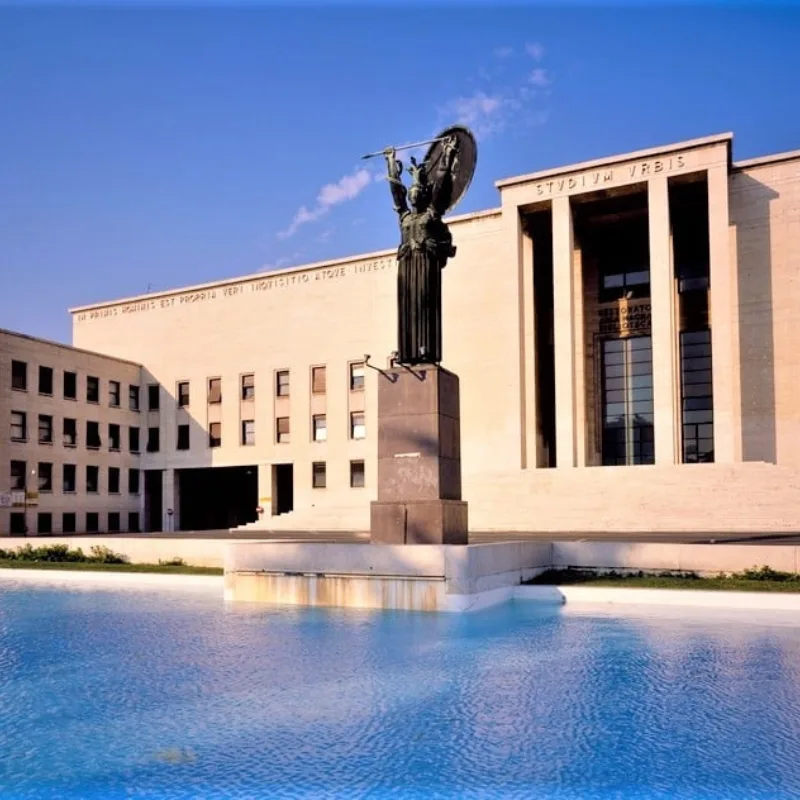
#132
QS World Ranking

#241
QS World Ranking
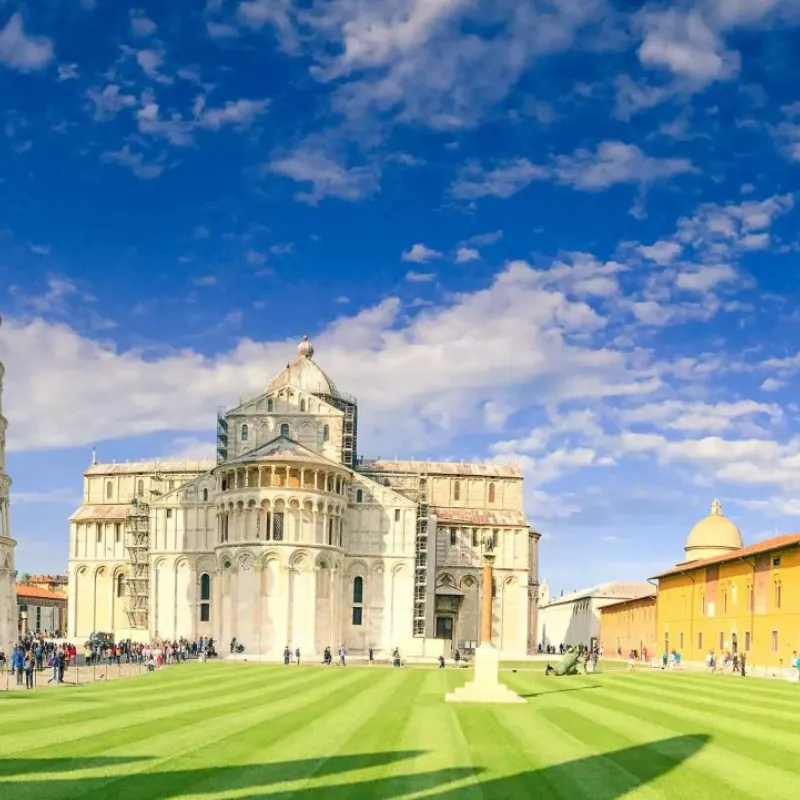
#382
QS World Ranking

#371
QS World Ranking
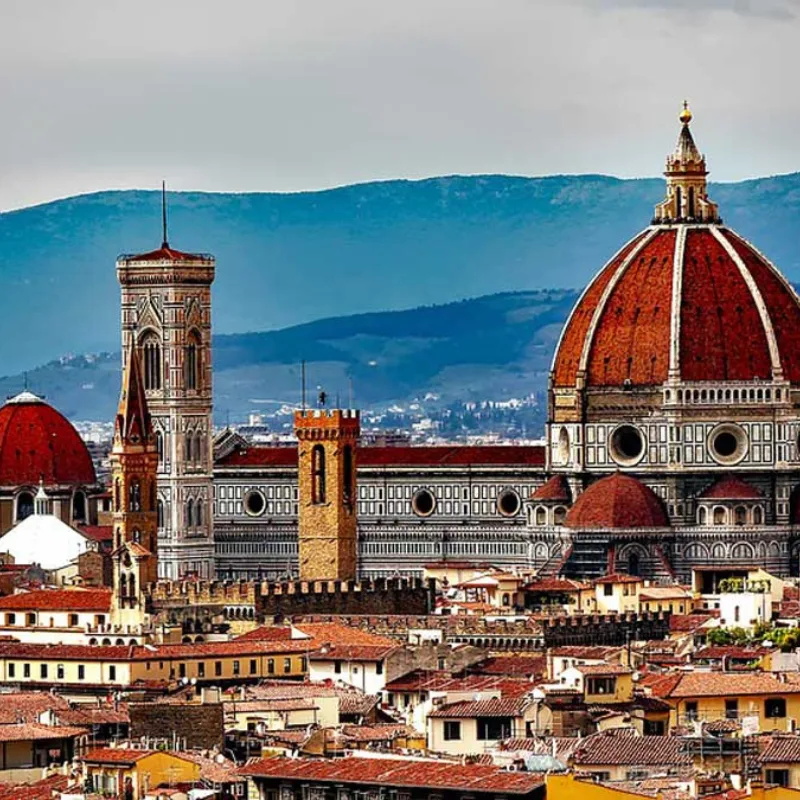
#358
QS World Ranking
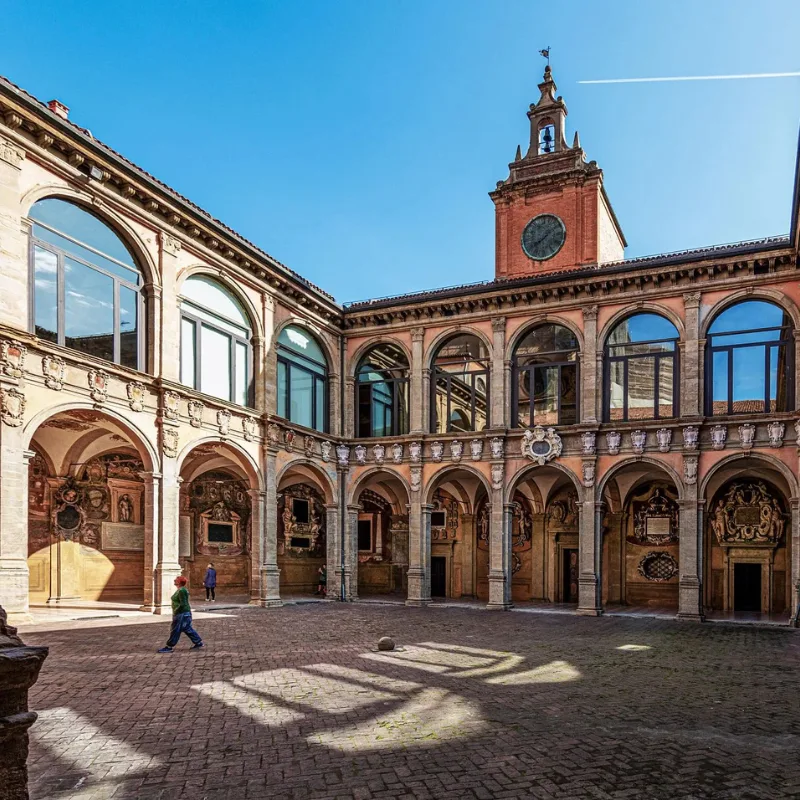
#133
QS World Ranking
Now that we are exploring how to apply to Italy universities, you should go through detailed information about the admission requirements to study in Italy. So, take a look below.
| Where to apply | Italian Embassy or Consulate in the home country. |
|---|---|
| Application Fee | Varies by the university, typically between €30 - €100. |
| Basic Requirements: | Complete application form, academic transcripts, passport, and proof of financial means. |
| Additional Requirements | Statement of purpose, letters of recommendation, portfolio (for arts/design courses) |
| English LanguageRequirements |
IELTS : 5.5 bands
TOEFL PBT : 507-557 points
TOEFL CBT : 180-217 points
TOEFL IBT : 80-99 points
|
Italy universities have their application criteria and deadlines & it significantly varies from university to university. But, despite such a difference, it can be identified that there exist two major intake options if you are planning to study in Italy. These two intake options are:
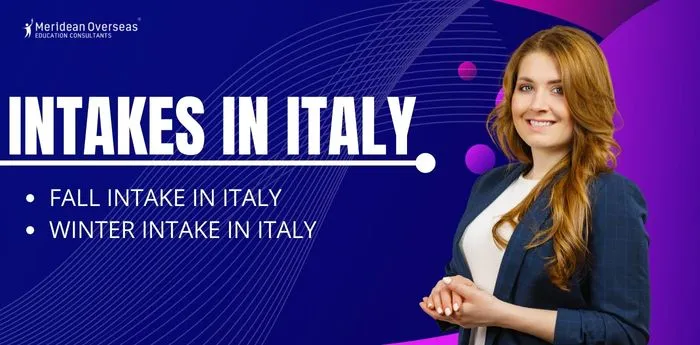
Italy universities offer a range of long-term and short-term courses and programs to international as well as Indian students. Also, you can explore courses from all levels from graduate to postgraduate & PhDs. Not only these, but the Italy universities offer a range of courses from various study segments from healthcare to management and other common study segments. However, to get enrolled in any of these courses you need support from experienced overseas education consultants, who can help you pick a perfect course to Study in Italy.
Arts
Painting
Sculpture
Goldsmithing
Design
Interior & Living Design
Product Design
Fashion & Art Design
Hospitality & Tourism
Hotel Management
Tourism Management
Event Management
Social Science & Humanities
Public Administration
International Cooperation
World Politics & International Relations
Business & Management
Business Administration & Economics
Business and Sports Management
Business, Media & Communications
Business Administration
Business Design
Luxury Brand Management
Connect With Meridean & Get Your Abroad Education Dream Fulfilled
To study in Italy for Indian students, you typically need to show proficiency in English by providing scores from recognised English proficiency tests. Commonly accepted tests include IELTS and TOEFL.
However, specific minimum score requirements for certain courses, such as GMAT, may vary depending on the chosen university or program. Below are the brief details of these tests.
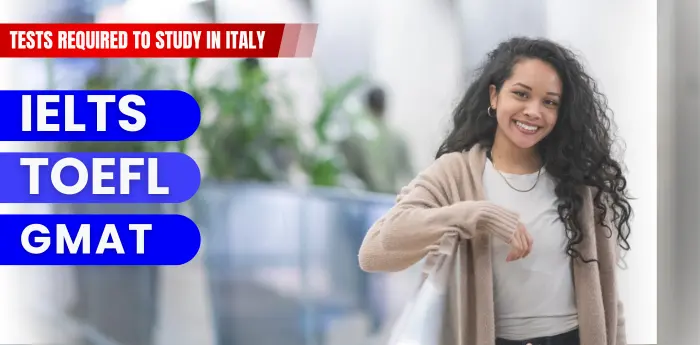
Getting a student visa is a must if you are aiming to Study in Italy. However, to get your student visa to pursue your higher education in Italy, you must be aware of certain key standards or requirements to be fulfilled. Here we will provide a brief about the key requirements to study in Italy, visa fees to apply if you are looking to study in Italy For Indian Students, the processing time & other essential visa-related details.
For instance; non-EU applicants, especially from Switzerland, Liechtenstein, Norway & Iceland, are not required to apply for a visa if their course duration is less than 90 days. But if it exceeds the set duration then you need to apply for a visa before your 90-day stay expires.
The fees for Italy’s student visa range from €76 to €80. Also, it is recommended that if you are applying for a student visa to Study in Italy, then you must start your application at least three months before your course commencement. You can apply for residence permits for stays in Italy if your course exceeds three months & such also enables part-time work opportunities for you. Further, you can get it extended to get a post-study work permit in Italy which allows a time of one full year to seek a full-time employment.
Private universities in Italy are generally more expensive than public ones. Thus, those wanting to study at private institutions are encouraged to apply for university-funded scholarships or look for other government scholarships in Italy to help with their educational expenses. The following are some of the most popular scholarships in Italy for overseas students
Take a look at the Scholarships for Indian Students studying in the Italy below.
| Scholarship to Study in Italy | |||||
|---|---|---|---|---|---|
| Scholarship Name | Level of Study | Countries Eligible | Eligibility Criteria | Applications Open | Amount |
| Politecnico di Torino International Scholarship | UG | Engineering and architecture UG students | Tuition fee waiver | Not specified | Not specified |
| Merit and Bocconi international awards | UG | Applicants applying to SDA Bocconi for UG program | 50% to 100% tuition fee waiver | Not specified | Not specified |
| University of Bologna study grants for international students | UG/PG | University students in undergraduate or postgraduate programs | Grant worth 11,000 EUR + 100% tuition fee waiver | Not specified | Not specified |
| The Italian government scholarships for international students | PG | International students pursuing master’s degree at any university in Italy | Full tuition fee waiver + monthly allowances | Not specified | Not specified |
| University of Pavia international scholarships for developing country students | PG | International students from developing countries studying a master’s degree program in English at the university | 8,000 EUR scholarship | Not specified | Not specified |
| Politecnico de Milano merit-based scholarships for international students | PG | International students pursuing a Master of Science | Tuition fee waiver + 5,000-10,000 EUR per year | Not specified | Not specified |

I applied visa for Australia through this website . Mr. Prashant &Mr. Prakash made the job hastle free for me. They were friendly, helpful & available all the time .My work is done in a smooth way & I highly recommend them. Moreover, you can book the free counselling session with them that give you the proper guidance to study abroad. I have no complaints and I am very grateful for the support 🙏

Meridean Overseas is best in Ahmedabad. Prashant Sir is very supportive and gives his best efforts for every applicant’s visa process. They have very good coordination with universities in Australia. I got Australia Dependant Visa today, so very happy for this and very thankful to Prashant Sir from Meridean Overseas, his work is best. I am extremely happy with the Meridean Overseas Education, Ahmedabad.

I would like to thank you very much for your time and support during my visa adjustment process and for helping me to obtain the desired outcome. I am also very thankful for your help in preparing me for the university interview which made the approval of my visa adjustment very successful. Best institute in India if you want to study abroad. I am personally thankful for SOMYAA KHANGAROT ma’am. She is very supportive and also motivates the students. Again thank you so much MERIDIAN Overseas and their team. ❤️💕

Vineeta, the stellar counselor at Meridean Overseas, made my study visa journey for New Zealand overseas education hassle-free. Actually i didn't put my file in merdian, but I put in another consultancy, they are not gave such support. Also, I am wroking person. One day I see Video in Instagram and contact to Meridian Overseas. about my visas queries and my visa slots. So they always help me in without any fees. On that day my consultancy didn't call me for the slot opening. But Merdian team call me for the slots and because of that I booked my slots.
So I Appreciate their work and Also, I recommend to my family member and friends.

First of all i would say full team of Meridean Overseas is very hard working generous and supporting people and my consultant Mr. Shubhang is very honest and very supportive person and while in the meeting. He told me each and everything clearly and nicely. I was really very impressed and got so many information during the meeting. And you all won't believe the meeting was absolutely free . You can also go and meet the team They are very friendly and clean as glass. If you are willing to go to abroad please consider them and give them a chance to consult you.

I had a wonderful experience with Meridean Overseas. My counselor's name is Miss Tanya Soni. She was incredibly helpful in every aspect, her guidance helped me a lot in understanding my process and solving my problems with the best possible solutions. I am very interested in studying in Poland, and Tanya ma'am helped me significantly, because of her guidance, my dream has come true. I'm very grateful for choosing a counselor from Meridean Overseas.

So far, my experience with Meridean Overseas has been truly remarkable. The experts at Meridean Overseas possess impressive knowledge and demonstrate a strong commitment to providing friendly service to their clients. My process consultant Miss Rashi, stands out with her profound understanding and consistent helpfulness. She is adaptive and ensures the completion of tasks in a timely manner. The team responds promptly to queries, and I am genuinely satisfied with the assistance received thus far. I have high expectations that the remainder of my visa application process will be handled with the same level of professionalism and efficiency.
Thank you, Meridean Team.

My experience with MOEC has been great. I would recommend MOEC for students who wants to pursue their further studies in abroad as their staff is extremely helpful and suggests the best. My counsellor has been really supportive throughout the entire process, from course selection to till visa approval. She always clarified my doubts and helped me in every single way possible and I highly appreciate it.
Ans. The cost of studying in Italy varies depending on the type of institution (public or private) and the level of study (undergraduate or postgraduate). On average, tuition fees range from €950 to €4,000 per year for undergraduate courses and €1,500 to €11,500 per year for postgraduate courses at public universities. Private universities may have higher tuition fees ranging from €6,000 to €20,000 per year.
Ans. Yes, Italy is an excellent destination for Indian students seeking higher education abroad. With its prestigious universities, diverse range of courses, vibrant culture, and relatively affordable living costs, Italy offers a rewarding academic experience for Indian students.
Ans. While proficiency in English is often required for admission to universities in Italy, some institutions may accept alternative English language proficiency tests or waive the language requirement for certain applicants, especially if they have completed previous education in English-medium institutions.
Ans. While Italy can be more affordable than other study destinations like the UK or the US, living costs in major cities like Milan and Rome can still be relatively high. However, with careful budgeting and exploring affordable accommodation and dining options, Indian students can manage their expenses effectively.
Ans. The exact amount of funds required for an Italy student visa may vary depending on individual circumstances and the duration of the intended stay. However, as a general guideline, students must demonstrate sufficient financial means to cover tuition fees, living expenses, and other costs for their stay in Italy.
Ans. While it is possible to obtain Scholarships for Indian Students to study in Italy, securing a 100% scholarship may be competitive and dependent on various factors such as academic merit, financial need, and funding availability. However, there are several scholarships offered by Italian universities, government agencies, and international organisations that students can explore.
Ans. Yes, there are options available for financially disadvantaged students to study in Italy, including scholarships, grants, and other forms of financial assistance offered by universities, government organisations, and private foundations. Additionally, part-time work opportunities may help offset students' living expenses.
Ans. The official language of Italy is Italian. However, many universities in Italy offer courses taught in English, especially at the postgraduate level. Additionally, proficiency in Italian may benefit daily communication and integration into Italian society.
Ans. The required IELTS score for admission to universities in Italy may vary depending on the institution and the level of study. However, a common minimum IELTS score requirement for undergraduate and postgraduate programs is often around 6.0 to 6.5 bands overall, with no individual band score below 6.0.
Ans. After completing their studies in Italy, international students may be eligible to apply for a residence permit for work purposes, allowing them to seek employment in Italy. Subsequently, they may be able to apply for permanent residency (PR) in Italy after meeting certain eligibility criteria, such as holding a valid work permit and meeting residency requirements.
Contact MOEC Experts for Study Abroad Guidance!
